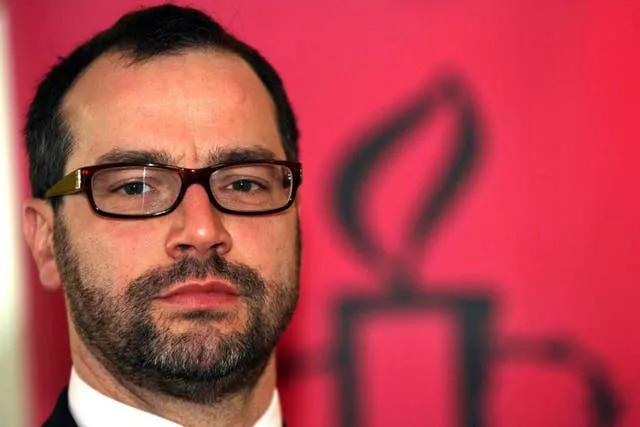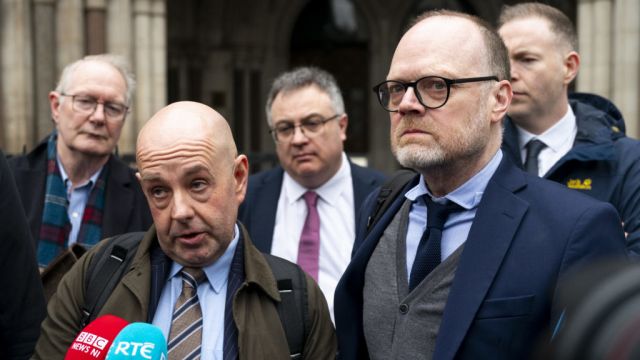The Policing Board has been asked to set up an inquiry into allegations that journalists in Northern Ireland were subject to unlawful covert surveillance by police.
Amnesty International and the Committee on the Administration of Justice (CAJ) have written to the board, the oversight body for the Police Service of Northern Ireland (PSNI), raising “serious concerns over how widespread the practice of surveillance of journalists and others may have been”.
It comes after a tribunal was told that police mounted a covert surveillance operation following the arrest of two journalists in a bid to unmask one of their sources.
The Investigatory Powers Tribunal (IPT) was told last week that the arrest of film makers Barry McCaffrey and Trevor Birney in 2018 was a “disruptive” tactic to see if the reporters would reach out to the source after their release from custody.
The tribunal is examining allegations that the award-winning journalists were subject to unlawful covert surveillance by UK authorities.
In 2018, Northern Ireland-based Mr McCaffrey and Mr Birney were controversially arrested as part of a police investigation into the alleged leaking of a confidential document that appeared in a documentary they made on a Troubles massacre.
The following year, the two journalists lodged a complaint with the IPT asking it to establish whether there had been any unlawful surveillance of them.

The letter to Policing Board chairwoman Deirdre Toner, seen by the PA news agency, has been sent by Patrick Corrigan from Amnesty and Daniel Holder from the CAJ.
It states: “Our organisations continue to share serious concerns about how widespread the practice of the use of covert surveillance powers against journalists and others may have been.
“As you will appreciate, the IPT will be limited to the particular circumstances of the specific case before it, rather than the question of wider PSNI practices in this area.
“Despite these limitations, this case has already revealed that such surveillance and has been deployed against multiple journalists on multiple occasions under multiple chief constables – a pattern of potential unlawful activity and breach of the European Convention of Human Rights.
“Given this, we are writing to again press for action from the Policing Board.”
They continued: “We repeat our request to the board to conduct an inquiry, under the powers vested in you under the Police (Northern Ireland) Act 2000, into PSNI use of surveillance powers against journalists, lawyers and other human rights defenders.
“Failing that, we wish to enquire how the board plans to fulfil its role effectively ensuring PSNI human rights compliance with respect to this matter which not only has the potential to undermine public confidence in policing but also in policing oversight mechanisms.”
A Policing Board spokesperson said: “The Policing Board will consider the correspondence received from Amnesty at its monthly meeting on Thursday.”
A PSNI spokesperson said: “As legal proceedings are ongoing it would be inappropriate to comment.”







